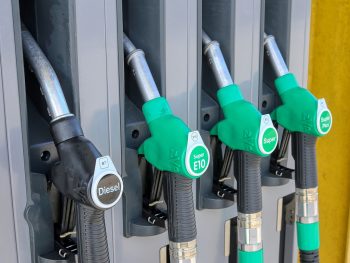Drivers still being hit by ‘unreasonably’ high fuel margins, RAC tells government
Average margins on fuel remain ‘unreasonably’ high despite government action to clamp down on ‘rip-off’ fuel prices, the RAC has warned.

The RAC believes both petrol and diesel should be on sale for around 145p
The margin on diesel rose to over 15p a litre in April and increased to above 18p, according to analysis by the motoring organisation.
And the margin on petrol is now nearly 12p a litre and has averaged 10p so far this year.
The long-term average for both fuels is just 8p.
Margins have risen even more in the last week on the back of the cost of oil reducing significantly from around $90 to the $83 mark, which has brought wholesale fuel prices down.
The average price of petrol stands at 150p a litre while diesel is at 157p.
But if retailers were to be “fairer” on drivers, the RAC believes both fuels should be on sale for around 145p, given they have cost almost the same on the wholesale market for more than two weeks.
It’s alerted Energy Secretary Claire Coutinho to the fact that drivers are still losing out at the pumps – and warned that retailers may need a “little more encouragement” to drop prices.
The Government is trying to increase competition with its proposed mandatory Pump Watch fuel price transparency scheme, while the Competition and Markets Authority (CMA) is getting new powers that will enable it to “shine a light on any attempt from retailers to unfairly hike up fuel prices” after its report last year concluded major retailers had overcharged by £900m in 2022.
Ahead of that, it is currently operating a voluntary scheme with 14 of the biggest retailers providing prices for all their sites on a daily basis.
The RAC has said it’s supportive of the scheme but told the Secretary of State for Energy Security and Net Zero that it believes a price monitoring body “with teeth” is key to increasing competition and holding retailers to account.
Fuel spokesman Simon Williams said: “We feel the current margins being charged by larger retailers in particular are extremely unfair on drivers struggling to get by in the cost-of-living crisis. The big four supermarket retailers, which dominate fuel sales, are once again flatly refusing to cut their prices in the wake of much lower wholesale costs. If they were being fair on drivers, they should already have shaved at least 5p off their current petrol average of 147p and 8p off diesel which averages 154p at a supermarket forecourt.
“Our data shows the supermarkets are taking about 11p a litre on petrol and 16p on diesel compared to 3p and 8p in 2019.
“We realise that supermarkets, along with all businesses, have been affected by inflation, but these increases seem blatantly unfair. And, of course, without them cutting their prices, there is little incentive for other retailers to follow suit.
“Having tracked fuel prices against consumer inflation, it’s easy to see the link between the two. We therefore have a strange situation where unreasonably big fuel margins are making inflation higher than it should be.”
He added: “If the work of Department for Energy Security and Net Zero and the CMA has had any effect to date on improving fuel price transparency, we ought to see prices at the pumps reduce significantly in the next week due to a sustained drop in the cost of oil. Sadly, we fear retailers are likely to need a little more encouragement before this happens.
“The RAC believes the situation will only be improved in the long term if the CMA as the price monitoring body is able to take meaningful action against retailers whose margins are deemed not to be mirroring significant reductions in the cost of wholesale fuel.”
The FairFuelUK campaign group has also called for a clampdown on fuel retailer profit margins as it warns of “petrol and particularly diesel drivers being continuously robbed right under this Government’s watch”.
It’s also calling for the PumpWatch scheme to get “legislative teeth to punish the unchecked ripping off of the UK’s 37 million drivers”.
Howard Cox, founder of FairFuelUK, said: “The CMA and the next government must introduce tough financial penalties for the decades of relentless profiteering by greedy wholesalers and oil firms at the expense of motorists, hauliers and the economy. This has to stop!”















